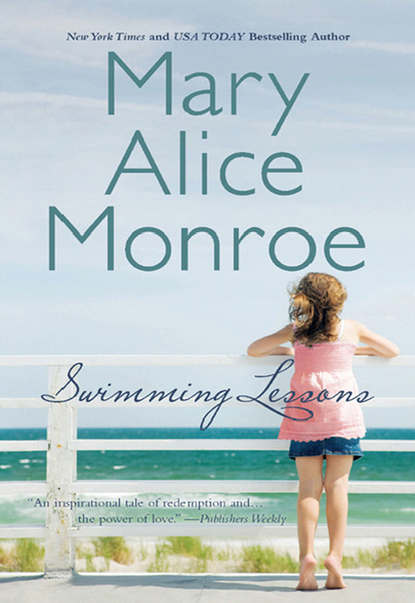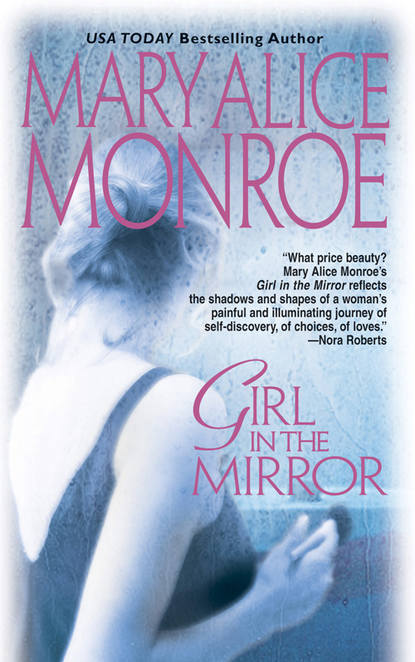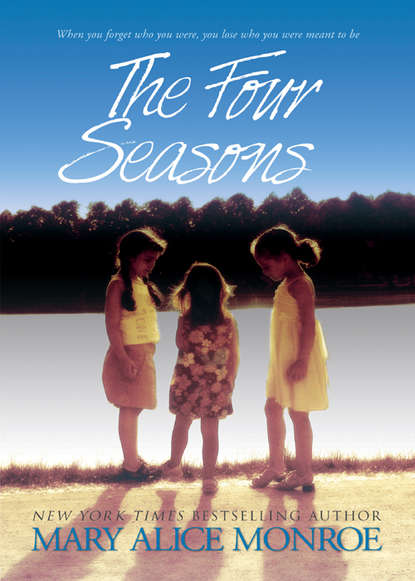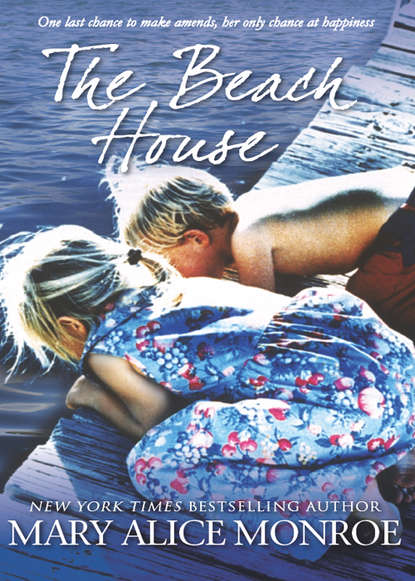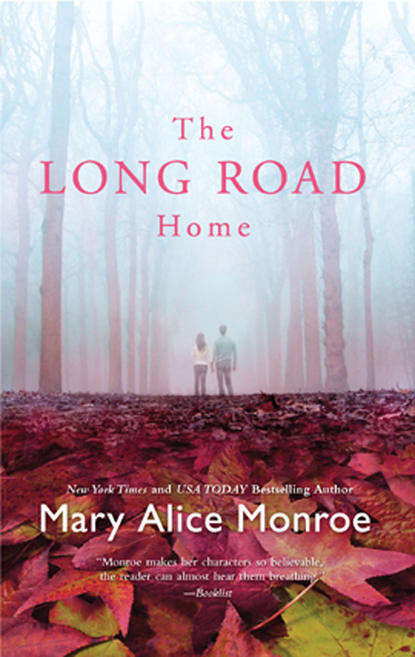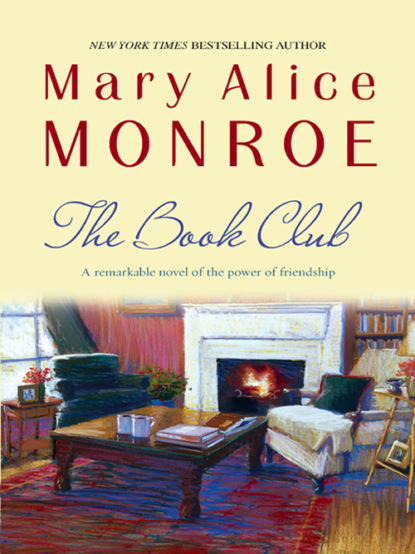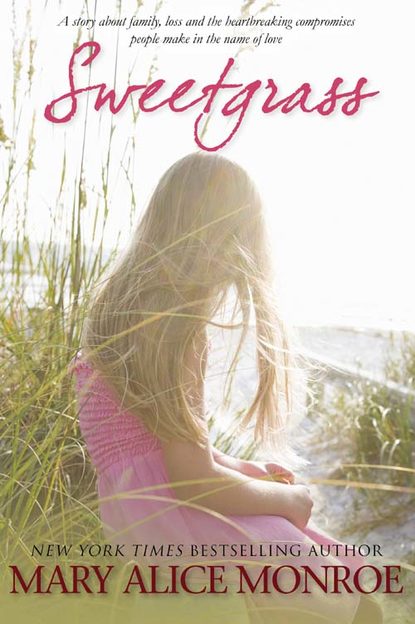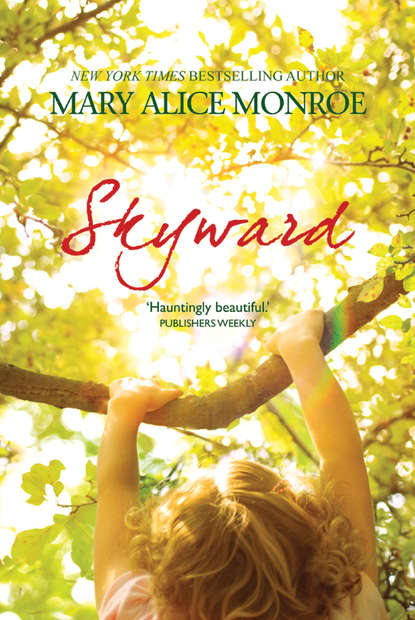
Полная версия
Skyward

Praise for the novels of
MARY ALICE MONROE
THE BEACH HOUSE
“With its evocative, often beautiful prose and keen insights into family relationships, Monroe’s latest is an exceptional and heartwarming work of fiction.”
—Publishers Weekly, starred review
“Whether you are one of the hundreds of sea turtle volunteers in the southeast or just wish you were, this beautifully written story brings us a glimpse of their dedication and commitment to the conservation of the loggerhead sea turtle.”
—Sally Murphy, Sea Turtle Coordinator for the South Carolina Department of Natural Resources
THE FOUR SEASONS
“Monroe writes with a crisp precision and narrative energy that will keep readers turning the pages. Her talent for infusing her characters with warmth and vitality and her ability to spin a tale with emotional depth will earn her a broad spectrum of readers, particularly fans of Barbara Delinsky and Nora Roberts.”
—Publishers Weekly
“Mary Alice Monroe writes from her heart to the hearts of her readers. It is a quality of emotional honesty together with lyrical, descriptive passages that draw her audience to books like The Four Seasons.”
—Charleston Post and Courier
“With novels like this one and The Book Club, Mary Alice Monroe continues to be one of the leaders of complex female relationship dramas that hit home to the audience.”
—Midwest Book Review
“Moving, touching and beautifully drawn, the characters in this wonderful novel are compelling and true. Ms. Monroe’s skills as a teller of women’s fiction are becoming quite exceptional.”
—Romantic Times
THE BOOK CLUB
“Monroe offers up believable characters in a well-crafted story.”
—Publishers Weekly
“The Book Club skillfully weaves the individual story threads into a warm, unified whole that will appeal to readers who enjoy multifaceted relationship novels with strong women protagonists.”
—Library Journal
GIRL IN THE MIRROR
“What price beauty? Mary Alice Monroe’s Girl in the Mirror reflects the shadows and shapes of a woman’s painful and illuminating journey of self-discovery, of choice, of loves.”
—New York Times bestselling author Nora Roberts
“What would you do if the career you cherished threatened to cost you your life? Mary Alice Monroe draws you into an absorbing tale of hard-won success, devastating choices and the triumphant power of love.”
—bestselling author Diane Chamberlain
Skyward
Mary Alice Monroe

www.mirabooks.co.uk
This book is dedicated to
Jim Elliott, Jemima Parry-Jones, Grace Gaspar,
Stacy Hughes, Franci Krawcke, Mary Pringle
and to all my fellow volunteers at the
South Carolina Center for Birds of Prey
And to dedicated professionals and volunteers
across the country—and the world—who
dedicate their time to help preserve and protect
the magnificent birds of prey.
ACKNOWLEDGMENTS
I have many people to thank for their assistance and support as I wrote this book. First and foremost is the founder and director of the South Carolina Center for Birds of Prey, James Elliott, for providing insights, information and corrections on the text. He is an inspiration to us all. Thanks to Franci Krawcke of SCCBOP for answering my questions and for teaching me how to handle raptors. Thanks also to Jemima Parry-Jones for sharing her extensive history and experience with raptors. And as always, heartfelt thanks to my dear friend Mary Pringle, who not only served as my mentor at the SCCBOP, but has shared countless mute-scrubbing duties with me.
Thank you to Marjory Wentworth for generously offering her magnificent poem “Contretemps,” (Nightjars, Laurel Publishing), and for her savvy and indefatigable support as publicist. Heartfelt thanks as well to fellow osprey lover Anne Rivers Siddons.
I am indebted to Queen Quet, Chieftess of the Gullah/Geechee Nation, for graciously offering translation and consultation regarding the character of Lijah and the Gullah/Geechee culture in this book. Your contribution was invaluable. I am also grateful to Gerald Mackey.
Several outstanding nurses shared their knowledge of the issues facing their profession, as well as the commitment and dedication of nurses today. Thank you, Janet Grossman, Gail Stuart, Therese Killeen, Alexandra Koch and Eileen Dreyer. I’m also grateful to Dr. Timothy Assey and Vanessa Ward for answering my questions concerning diabetes.
For an education on eagles, I’m grateful to Tom Murphy of the South Carolina Department of Natural Resources. Thank you to Coastal Carolina Expeditions, Carolina Heritage Outfitters and the Bull Island Ferry for consultations about expeditions on South Carolina’s incredible rivers. A special thank-you to Jerry and Jenny Reves for sharing articles and books, and for a memorable boat trip that expanded my appreciation for this beautiful region. And for a tour in which we stopped for every raptor we spotted, I am grateful to Ruth Cryns Rutledge.
I’m beholden to Buzzy Porter for his incredible support, expertise and friendship, to Patti Morrison for always being there for events with that megawatt smile, and to all the staff at Barnes & Noble, Mt. Pleasant. Likewise, heartfelt thanks to Marge Irizarry and the staff at Waldenbooks, Charleston.
My sincere appreciation goes to my divine editor, Martha Keenan, and to Dianne Moggy, Amy Moore-Benson, Donna Hayes, Craig Swinwood, Isabel Swift, Randall Toye, Tania Charzewski, Stacy Widdrington, Katherine Orr and everyone at MIRA. And, as always, special thanks to Karen Solem. Thank you, Barbara L. Bergwerf, for the photos and for so many other kindnesses you give so freely.
I have the privilege of working with dedicated volunteers at the South Carolina Center for Birds of Prey. These are remarkable individuals who give their time freely. Thank you Robert Allen, Tara Bailey, Beverly Ballow, Susan Bogart, Desiree Boulware, Laura Buchta, Susan Burnet, Simone Castiller, Vicki and Ashley Causey, Jeff and Cari Cone, Linda Flanagan, Sheena Forte, George Gardner, Dave Gunnells, Randy Hausenfluck, Nedra Hecker, Carolyn Hodo, Nadara Hoffmann, Lara Hopkins, Jennifer Jolly, Joline Kennedy, Meghan Lee, Monique Leveille, Michelle Lewis, Gail Lucas, Susan Maguire, Heather Marlowe, Mary Catherine Martin, Angela McClelland, Kelly Moore, Cynthia Murphy, Murray Neale, Marty North, Kay O’Mara, Marjorie Rath, Joe Regan, Joanne Remington, Bill Robertson, Mary Ellen Rogers, Linnea Rogers-Notton, Diane Rountree, Ted Rucker, Paul Rushton, Mary Ellen and Jim Sharman, Audrey South, Stacy Spence, Amy Sprouse, Donna Totten, Michael and Dede Vergot, Mary Whaley, Mima Wicker, Andrea Wilbanks, Linda Zinnika—and to those intrepid souls who travel across the state to pick up and deliver injured birds. I thank you all!
Finally, for much more than I can write here, my love and heartfelt thanks go to my family: to Markus for grace under pressure, Claire, Gretta and, especially, Zachary for patiently being my dialogue coach for teenaged characters.
CONTRETEMPS
Though the world’s dark heart
brought me here,
where time was hiding
in the unleashed sea,
I will stay in this fragile place
of broken trees and wounded birds
that teach me patience as I watch
them fill the bared branches
like clusters of singing leaves.
I will follow
a passing flock of plovers,
who think faster than we can see
when they suddenly turn
and flash their snowy undersides
in one bright act
of collected caring consciousness.
They must have heard a warning
in the lost language
of the river wind.
But the silent merlin—
in pursuit
disarmed, confused, and angry—
cackles at his lazy gods.
I see the breath
of another god, moving
beneath still wings
of the osprey and the eagle
in flight. I see
countless angels, rising from the river
with open hands
and upturned palms
to hold the wings in place
as the animals glide over
this sanctuary
and pull the sky
back into the universe.
—Marjory Wentworth
“Fa ebeeting wha dey een wi, hunnuh kin tun Skyward an’ kno’.” (For everything that’s in us, you can turn Skyward and know.)
—Queen Quet, Chieftess of the Gullah/Geechee Nation
The character of Lijah in this story was inspired by the Gullah tradition of the African-American oral historians (griots). The Gullah language is as rich and complex as the culture, and I was fortunate to have the guidance of Queen Quet of the Gullah/Geechee Nation in writing Lijah’s dialogue. However, I have taken the liberty of making substitutions so that the reader would more readily understand the text. Thus, while the dialogue is not pure Gullah, I've done my best to convey the unique qualities and rhythm of this significant Lowcountry language.
Contents
Chapter One
Chapter Two
Chapter Three
Chapter Four
Chapter Five
Chapter Six
Chapter Seven
Chapter Eight
Chapter Nine
Chapter Ten
Chapter Eleven
Chapter Twelve
Chapter Thirteen
Chapter Fourteen
Chapter Fifteen
Chapter Sixteen
Chapter Seventeen
Chapter Eighteen
Chapter Nineteen
Chapter Twenty
Chapter Twenty-One
Chapter Twenty-Two
Chapter Twenty-Three
Chapter Twenty-Four
Epilogue
Birds of Prey(also known as raptors) have characteristics that distinguish them from other birds. A bird of prey has a sharp, hooked beak for tearing food, sharp, curved talons, powerful feet for killing its prey and binocular vision. Thirty-eight species of raptors are found in the geographic limits of the United States and Canada. These species are divided into categories: buteos, accipiters, falcons, harriers, kites, eagles, ospreys and owls.
1
A brisk, wintry wind whistled along the South Carolina coast. It rattled the ice-tipped, yellowed spartina grass and rolled a thick, steely gray fog in from the sea. The old black man paused in his walk and cocked his ear toward the sky. He heard the whispers of change in the wind. Hunching his shoulders, he turned the collar of his threadbare woolen jacket high up to the brim of his fedora, then dug his hands deep into his pockets. He resumed walking, but he kept his eyes skyward.
The old man had walked nearly half a mile when he heard a high, plaintive whistle over the wind’s song. He stopped abruptly, rigid with expectation, staring out at the heavy shroud that hovered over the wetlands. It was a still morning; the pale night moon lingered in the dusty sky. Suddenly, a magnificent white-crested eagle broke through the mist. Its broad, plank-straight wings stretched wide as it soared over the water.
“There you be!” he muttered with deep satisfaction. Bringing his large, gnarled hands to cup his mouth, he whistled sharp and clear, mimicking the birdcall.
The bald eagle circled wide, flapping its powerful wings with a majesty reserved for royalty. The great bird took a lap around the marsh before deigning to return the call.
The effect was not lost on the old man. Heartened, he rushed his hands to his mouth and whistled again, louder and more insistently. This time, the eagle banked, then flew unwaveringly toward him.
This was the moment Harris Henderson relished. He squinted and let his gaze slowly traverse the wide, open meadow encircled by tall, leggy pines. The grasses were crisp and the ground was hard with the early morning frost. In only one day’s time, winter had blustered into the Lowcountry, plummeting temperatures from balmy to freezing. He took a long, deep breath, feeling the moist chill go straight to his lungs. The morning air carried the scent of burning wood—cedar, he thought—so strong he could almost taste it.
Turning his head, he gazed upon the sleek red-tailed hawk held firm against his chest by his thick leather gloves. Maggie Mims, a robust woman with hair almost the same color red as the hawk’s tail, looked up at him with eyes sparkling with excitement.
She gave a curt nod.
Harris moved his gloved hands so that his left wrapped around the hawk’s wings and the right maintained a firm hold of the hawk’s feet. Instantly, the hawk’s dark gaze sharpened, her mouth opened and she jerked her wings hard for freedom.
“So, you’re eager to be off,” he said in a low voice.
He waited patiently for the bird to calm itself, all the while looking on with admiration. She was a beautiful specimen, creamy breasted with a dark bellyband and the brick-red tail feathers that gave the species its name. Red-taileds were superb hunters, “the black warriors” J.J. Audubon had called them. It was hard to believe, looking at her sleek, healthy form, that she’d been brought into the clinic with gunshot wounds a mere two months earlier. “Well, it won’t be long now.”
The bird cocked its head at the sound of his voice, glaring, ferocious—the right attitude for survival. Every instinct in its body was on alert for flight. Harris could feel the bird’s anticipation in his own veins.
In this brief moment before flight, Harris sought to merge spirits with the bird. He’d read stories of shamans who practiced this ancient art, myths of Indians whose spirits soared with eagles, tales that he’d heard spoken of only in passing or in jest. Though he’d tell this to no one, deep down he’d always believed that at the core of legends and myths lay a kernel of truth. There were individuals who communicated at some visceral level with birds. He knew it. Witnessed it.
And it was his private pain that he was not one of them. Although highly skilled, he didn’t possess the rare instinct—the gift—of connection. The art of truly flying the birds.
The closest he came to it was at liftoff. The seconds when the bird’s wings stretched out and he heard the whup-whup of their flapping and felt the quick fluttering of air against his cheek as the bird flew fearlessly into the wind. At that stolen moment in time he caught an exhilarating glimpse of what it might be like to fly, to feel the lift, then the air glide over him like water.
“Ready?” asked Maggie.
Sensing freedom at hand, the red-tailed tightened its talons on his arm. The brisk wind gusted, riffling the feathers on its head. She didn’t flinch. Her eyes were focused. A faint stream of breath clouded the air like steam as her chest rose and fell. The moment had come.
“Okay, my beauty,” he said softly to the hawk. “Let’s send you home.”
With a lift of his arm, he let his hands go. Instantly the talons released their grip. Wings fluttered, stirring the air. Harris released a sigh as the hawk took flight.
Up, up, the red-tailed climbed. Harris tracked the bird, assessing her strength and looking for any tipping, which would indicate the broken wing hadn’t completely healed. The margin for survival was very slim in the wild. A raptor had to be one hundred percent to successfully hunt. There was nothing tentative about this bird’s flying, however, and Harris felt a bone-deep satisfaction that their work at the rehabilitation center had been successful.
This bird, number 1985, was successfully released to the wild.
“We’re not s’posed to hunt in there.”
Brady Simmons pointed the business end of his .22 caliber rifle toward the No Hunting sign posted on the gnarled bark of a bare-leafed live oak. “It says right here, see?” he said, careful to make it more question than statement.
His father rubbed his bristled jaw and drawled, “I don’t see no sign.”
“Billy Trumplin’s dad says we could get in big trouble if we hunt in there. ‘Specially birds. It ain’t even the season.”
Roy Simmons slowly turned his head, narrowing his eyes as he focused on his eldest son. His voice was low but lethal. “You tellin’ me what to do now, boy?”
Brady took a step back. “N-no, sir.”
The spark in his father’s eyes banked as he acknowledged the respect. “Our family’s been huntin’ this here land longer than anyone can remember. There ain’t nothing wrong with takin’ a little of what’s there for the takin’.” He hoisted his rifle. “Besides, we ain’t here for sport. We’re here to put food on the table. And I’ll be dog damned if some tree hugger’s gonna up and tell me I can’t.”
Brady gave a curt nod and kept an eye on his father’s balled fists. The stench of stale whiskey on his father’s breath kept the boy mute with fear and contempt.
His father reached out to rip the sign from the tree bark and throw it on the ground.
Brady’s face was a portrait of teenage apathy as he watched his father ground the muddy heel of his boot on the federal sign. What a jerk, he thought. He was sick of hearing his father grouse about land that had been “stolen” from the people. How could someone steal what wasn’t theirs in the first place? Besides, what did he care about the land and who owned it? All he wanted was to get as far away from this hellhole as he could.
Satisfied, his father turned and pushed into the federally protected land. “Well, come on, then,” he said over his shoulder. “Don’t lag behind.”
The woods were still dark in the dank hush of early morning. The crush of Brady’s boots in the layers of frosted, composting leaves sounded violent in the quiet forest. There were lots of loblolly pines, growing thin and so close together it would be easy to get lost if one didn’t know the territory. Brady always preferred the longleaf pine and the way its long needles stirred in the breeze. There was something regal about them, the way they stood ten stories tall, six feet around and straight-backed—the kings of the pine forest. He liked them even if his father hated them, calling them nothing better than wood weeds on account of the fact that the fire-resistant bark was no good for firewood. He’d heard tell of a time when longleafs used to dominate the woods, back before the buzzsaws did their work. Brady would like to have seen that.
As he walked around the clustered trunks, he noticed how the light of the rising sun dappled through the leaves, making the melting frost sparkle like diamonds. In the thick branches over his head, he could hear fox squirrels chattering and, farther off, a red-cockaded woodpecker hammering into the sapwood.
“Quit draggin’ your feet back there! If you didn’t stay up all night with that rowdy bunch of no-counts you call friends you wouldn’t be so damned worthless in the mornin’. Took a bomb to get you outta that bed this morning. I told you we was goin’ huntin’ this mornin’.”
Brady spit out the sour taste of his breakfast of cold biscuits and jerky, then picked up his pace behind the bulky, wide-shouldered man in the camouflage jacket. At least it would be the last thing he’d hear from the old man for a while, he thought. From here on in, he’d be telling him what to do in hissed whispers and jabs with his index finger so as not to spook the game.
Roy Simmons never asked his son where he might think was a good place to hunt or even what game he’d like to go after. Brady felt little more than a lackey behind the skilled huntsman who knew better than most where to find the first buck of the season, or a fertile oyster bed, or where to flush out birds. That’s what they were after this morning. Some pheasant, or maybe quail…something special to put on the Christmas dinner table tomorrow.
Most of the food on their table came from what his daddy hunted or fished. It was pretty much a hand-to-mouth existence for the family of seven. His mama did all she could with whatever his father brought home, but he never seemed satisfied. And lately, with the neighboring land just made into a national preserve, places to hunt were hard to come by. More and more folks were after what little game was left. Roy Simmons had to hunt longer and smarter to bring less to the table, even as his young were growing bigger and eating more.
He preferred hunting alone, but for the past few days since school was out for the holiday he’d dragged Brady, the eldest son, along on his early-morning hunting trips. They’d come up empty-handed each time. It being the holiday, the stakes were higher. Every day Brady saw his father’s desperation turn to anger. As he followed the pounding footfall of his father, Brady hoped he wouldn’t take that anger out on him.
Brady and his father walked without luck for more than an hour into the Marion National Forest, miles from the small spread of ramshackle house and barn that his family called home. The scrap of land was deeded to his great-grandfather back when this place on earth was considered nowhere. Now the sprawl from Charleston was spreading its tentacles their way, causing environmentalists to scoop up whatever they could as protected land. Their scrubby bit of earth was a small speck of private land bordered by thousands of acres of national forest, what his daddy smugly called “the thorn in the ass of the feds.”
“You think maybe we should head back?” he asked, foot weary.
“We’re not going back without we get somethin’ for dinner.”
Brady silently groaned. His eyelids were drooping and his toes were cold in his boots as he silently kept up. He hated being forced to get up early in the morning. He hated being stuck in these godforsaken woods, hungry and tired, when all he wanted to do was go back to his warm bed, even if he did have to share the room with his brother and the dog. And though he’d never admit it to his father, he hated hunting. It was boring and pointless, like most things in his life.
At last they came to where the flat woodlands opened up to a wide expanse of open marshland. His father stopped here, his shotgun hanging from his arm, to survey the landscape with an eagle eye.
A brisk wind was blowing in from the ocean, stinging Brady’s cheeks with crisp freshness and waking him to the beauty of the eastern sky. He lowered his rifle in quiet awe. The dawn had already declared itself. Pink streaks softly shadowed a pearly blue sky, but an approaching armada of low-lying gray clouds and fog stretched threatening fingers across the horizon.
“Look! There!” His father jabbed his side and pointed.
“Where?”
“There. Over that stretch of marsh. At nine o’clock.”
Brady turned his head to see an enormous black bird soaring on a great expanse of wing. The beauty of the sight was awesome.
“Go on, son. Take the shot!”
Frozen with shock that his father was actually offering him the rare opportunity to take the shot, Brady fumbled as he raised the barrel, losing precious seconds.
“Hurry up! You’ll lose it.”
I ain’t gonna lose it, he thought to himself, aware that actually speaking the words could cause him to lose his train on the bird. He could hear the blood roar in his ears, and excitement thrummed in his veins as he brought his eye to the scope.
“It’s bankin’,” his father said. “Comin’ right for you.”
“I can’t see it!”
“It went back into the fog. Don’t matter. Wait for him. Be cocked and ready.”



